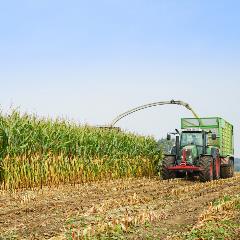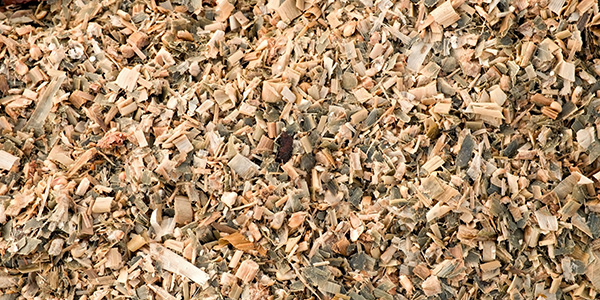AGRONOMICSUPPORT
YOU CAN TAKETO THE FIELD
How to Select the Right Corn Hybrid for Silage
Step 1: Understand your local conditions
When selecting a silage hybrid, it’s critical to first understand the conditions in your area and on your fields. Narrow down hybrids to choices that fit your soil type, weather conditions and maturity range. And remember – silage hybrids should be about five to ten relative maturity days higher than grain hybrids in your area.
Step 2: Dial in nutrition
We’re seed specialists, not nutritionists, so we recommend following up with a beef or dairy nutritionist to determine what’s most important in your feed ration. Some herds need to focus on protein, some need to focus on starch and some prioritize fiber and digestibility. It’ll be different for each herd. We’ll stick to providing the high quality hybrids, and let your nutritionist hone in the feed needs for your cattle.
Step 3: Evaluate hybrid characteristics
Quality
The first characteristic to evaluate is quality. Consider fiber, starch and protein content – the higher, the better (follow up with your nutritionist for a specific plan for your herd). LG Seeds silage proven hybrids include ratings for fiber, net energy lactation, vitro DM digestion, yield, milk per ton, milk per acre, starch, neutral detergent fiber digestibility and protein. Keep in mind that a hybrid with excellent yield, might not be the hybrid with the best silage quality. But, generally if a hybrid has high grain yield, it has high starch content. All these areas of quality are generally summed up in the milk per ton rating.
 Tonnage
Tonnage
The measurement of quality and tonnage per acre is milk per acre, which is important to evaluate when choosing a hybrid that brings both high tonnage and high quality. Historically, if a hybrid was good for grain, it would be good for silage. However, this trend is being broken today with the development of new and unique hybrids that have a leafy stature and boast highly digestible fiber content.
Agronomics
Solid agronomic characteristics are the last component to finding a silage hybrid with consistent performance. A corn crop with good health will help keep silage quality high when it’s stored. If the plant is damaged or injured from disease, pests or weather, mycotoxins can develop in the grain throughout the season resulting in poor quality silage. Applying a fungicide can also help maintain quality in your silage, as early plant death can make silage too dry for fermentation.
Need product recs? We have you covered.
Wisconsin is a heavy silage producing area, so we’re breaking down our top two silage products in Wisconsin with genetically diverse backgrounds and different trait choices for disease and insect protection.
LG59C72 is available in VTDoublePRO® or conventional, and it ranked at the top of Wisconsin silage trials for tonnage and quality. It fits across a wide variety of soil types and is extremely healthy with good disease tolerance, including impressive tolerance to Tar Spot. It stands tall in the field with beautiful dark green leaves and large kernels that make it an eye-catcher for any beef or dairy producer.
LG60C12 has excellent grain content in the silage and very good digestibility ratings. This hybrid can handle lower planting populations and really shines on ground with high fertility. It also boasts good disease tolerance, especially to against tar spot. Grab this hybrid in Agrisure Duracade® or Agrisure Viptera® trait packages.
Create your customized plan
There are plenty of choices when it comes to finding the right silage hybrid for your farm. Use these steps, or reach out to your local LG Seeds rep, to build a customized silage plan for your farm.
VT Double PRO® is a trademark of Bayer Group. Agrisure®, Agrisure Artesian®, Artesian™, Agrisure Duracade® and Agrisure Viptera ® are trademarks of a Syngenta Group Company. All other trademarks are the property of their respective owners.





